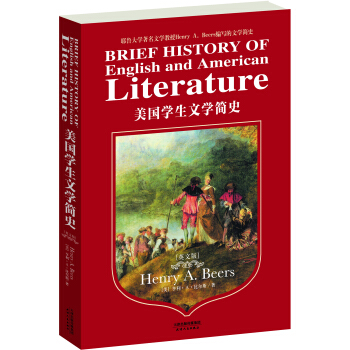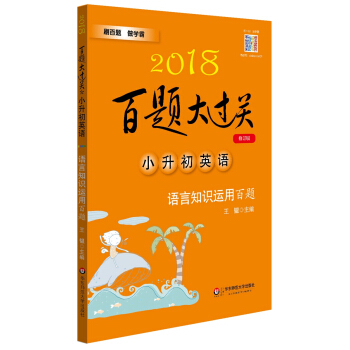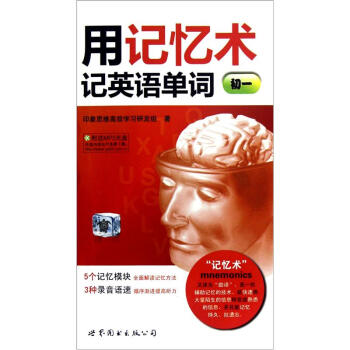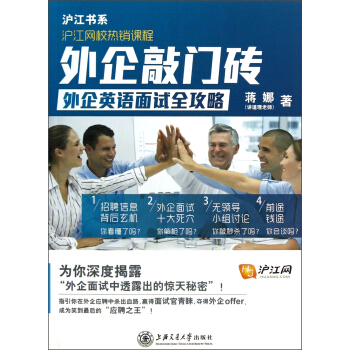

具體描述
編輯推薦
英語國傢學生曾經使用的經典閱讀教材,國內學生提升英語閱讀水平的優秀素材!全書配套英文朗讀MP3文件免費下載,在幫助讀者學習英美文學史的同時,更好地訓練英語閱讀水平,帶領讀者步入優美的英語文學世界,在英語閱讀中感受西方文化的魅力!
內容簡介
這本全英文版《美國學生文學簡史》,由耶魯大學英語文學教授Henry Beers為英美學生編寫,是一部英美文學簡史教程,分為上下兩部分,包括英國文學史和美國文學史,共17篇章。對於準備齣國留學或英語專業學習者來講,英美文學史是一門必須瞭解和學習的課程。全書配套英文朗讀MP3文件免費下載,在幫助讀者學習英美文學史的同時,更好地訓練英語閱讀水平,帶領讀者步入優美的英語文學世界。這本英文原版讀本,不僅能讓國內學生依托教材,全麵係統地訓練英語,同時,通過書中的故事與文學作品,感受英美曆史文化,培養良好的閱讀興趣與品味。本書也適閤成人英語學習者提高英語閱讀水平使用,讓眾多國內讀者在瞭解西方文學的同時,感受英語語言的魅力。
In so brief a history of so rich a literature, the problem is how to get room enough to give, not an adequate impression-that is impossiblebut any impression at all of the subject. To do this I have crowded out everything but belles-lettres. Books in philosophy, history, science, etc., however important in the history of English thought, receive the merest incidental mention, or even no mention at all. Again, I have omitted the literature of the Anglo-Saxon period, which is written in a language nearly as hard for a modern Englishman to read as German is, or Dutch. Caedmon and Cynewulf are no more a part of English literature than Vergil and Horace are of Italian. I have also left out the vernacular literature of the Scotch before the time of Burns. Up to the
date of the union Scotland was a separate kingdom, and its literature had a development independent of the English, though parallel with it.
In dividing the history into periods, I have followed, with some modifications, the divisions made by Mr. Stopford Brooke in his excellent little Primer of English Literature. A short reading course is appended to each chapter.
目錄
PART I Outline Sketch of English LiteratureCHAPTER 1
FROM THE CONQUEST TO CHAUCER
CHAPTER 2
FROM CHAUCER TO SPENSER
CHAPTER 3
THE AGE OF SHAKSPERE
CHAPTER 4
THE AGE OF MILTON
CHAPTER 5
FROM THE RESTORATION TO
THE DEATH OF POPE
CHAPTER 6
FROM THE DEATH
OF POPE TO THE FRENCH REVOLUTION
CHAPTER 7
FROM THE FRENCH REVOLUTION TO
THE DEATH OF SCOTT
CHAPTER 8
FROM THE DEATH
OF SCOTT TO THE PRESENT TIME
CHAPTER 9
THEOLOGICAL AND RELIGIOUS
LITERATURE IN GREAT BRITAIN
PART II Outline Sketch of American Literature
CHAPTER 10
THE COLONIAL PERIOD
CHAPTER 11
THE REVOLUTIONARY PERIOD
CHAPTER 12
THE ERA OF NATIONAL EXPANSION
CHAPTER 13
THE CONCORD WRITERS
CHAPTER 14
THE CAMBRIDGE SCHOLARS
CHAPTER 15
LITERATURE IN THE CITIES
CHAPTER 16
LITERATURE SINCE 1861
CHAPTER 17
THEOLOGICAL AND
RELIGIOUS LITERATURE IN AMERICA
精彩書摘
CHAPTER 1FROM THE CONQUEST TO CHAUCER
1066~1400.
The Norman conquest of England, in the 11th century, made a break in the natural growth of the English language and literature. The old English or Anglo-Saxon had been a purely Germanic speech, with a complicated grammar and a full set of inflections. For three hundred years following the battle of Hastings this native tongue was driven from the king's court and the courts of law, from parliament, school, and university. During all this time there were two languages spoken in England. Norman French was the birth-tongue of the upper classes and English of the lower. When the latter finally got the better in the struggle, and became, about the middle of the 14th century, the national speech of all England, it was no longer the English of King Alfred. It was a new language, a grammarless tongue, almost wholly stripped of its inflections. It had lost a half of its old words, and had filled their places with French equivalents. The Norman lawyers had introduced legal terms; the ladies and courtiers, words of dress and courtesy. The knight had imported the vocabulary of war and of the chase. The master-builders of the Norman castles and cathedrals contributed technical expressions proper to the architect and the mason. The art of cooking was French. The naming of the living animals, ox, swine, sheep, deer, was left to the Saxon churl who had the herding of them, while the dressed meats, beef, pork, mutton, venison, received their baptism from the tabletalk of his Norman master. The four orders of begging friars, and especially the Franciscans or Gray Friars, introduced into England in 1224, became intermediaries between the high and the low. They went about preaching to the poor, and in their sermons they intermingled French with English. In their hands, too, was almost all the science of the day; their medicine, botany, and astronomy displaced the old nomenclature of leechdom, wort-cunning, and star-craft. And, finally, the translators of French poems often found it easier to transfer a foreign word bodily than to seek out a native synonym, particularly when the former supplied them with a rhyme. But the innovation reached even to the commonest words in every-day use, so that voice drove out steven, poor drove out earm, and color, use, and place made good their footing beside hue, wont, and stead. A great part of the English words that were left were so changed in spelling and pronunciation as to be practically new. Chaucer stands, in date, midway between King Alfred and Alfred Tennyson, but his English differs vastly more from the former's than from the latter's. To Chaucer Anglo- Saxon was as much a dead language as it is to us.
The classical Anglo-Saxon, moreover, had been the Wessex dialect, spoken and written at Alfred's capital, Winchester. When the French had displaced this as the language of culture, there was no longer a "king's English" or any literary standard. The sources of modern standard English are to be found in the East Midland, spoken in Lincoln, Norfolk, Suffolk, Cambridge, and neighboring shires. Here the old Anglian had been corrupted by the Danish settlers, and rapidly threw off its inflections when it became a spoken and no longer a written language, after the Conquest. The West Saxon, clinging more tenaciously to ancient forms, sunk into the position of a local dialect; while the East Midland, spreading to London, Oxford, and Cambridge, became the literary English in which Chaucer wrote.
The Normans brought in also new intellectual influences and new forms of literature. They were a cosmopolitan people, and they connected England with the continent. Lanfranc and Anselm, the first two Norman archbishops of Canterbury, were learned and splendid prelates of a type quite unknown to the Anglo-Saxons. They introduced the scholastic philosophy taught at the University of Paris, and the reformed discipline of the Norman abbeys. They bound the English Church more closely to Rome, and officered it with Normans. English bishops were deprived of their sees for illiteracy, and French
abbots were set over monasteries of Saxon monks. Down to the middle of the 14th century the learned literature of England was mostly in Latin, and the polite literature in French. English did not at any time altogether cease to be a written language, but the extant remains of the period from 1066 to 1200 are few and, with one exception, unimportant. After 1200 English came more and more into written use, but mainly in translations, paraphrases, and imitations of French works. The native genius was at school, and followed awkwardly the copy set by its master.
The Anglo-Saxon poetry, for example, had been rhythmical and alliterative. It was commonly written in lines containing four rhythmical accents and with three of the accented syllables alliterating.
R_este hine th?r_úm-heort; r_éced hlifade
G_eáp and g_óld-f?h, g?st inne sw?f.
Rested him then the great-hearted; the hall towered
Roomy and gold-bright, the guest slept within.
This rude energetic verse the Saxon sc?p had sung to his harp or glee-beam, dwelling on the emphatic syllables, passing swiftly over the others which were of undetermined number and position in the line. It was now displaced by the smooth metrical verse with rhymed endings, which the French introduced and which our modern poets use, a verse fitted to be recited rather than sung. The old English alliterative verse continued, indeed, in occasional use to the 16th century. But it was linked to a forgotten literature and an obsolete dialect, and was doomed to give way. Chaucer lent his great authority to the more modern verse system, and his own literary models and inspirers were all foreign, French or Italian. Literature in England began to be once more English and truly national in the hands of Chaucer and his contemporaries, but it was the literature of a nation cut off from its own past by three centuries of foreign rule.
The most noteworthy English document of the 11th and 12th centuries was the continuation of the Anglo-Saxon chronicle. Copies of these annals, differing somewhat among themselves, had been kept at the monasteries in Winchester, Abingdon, Worcester, and elsewhere. The yearly entries were mostly brief, dry records of passing events, though occasionally they become full and animated. The fen country of Cambridge and Lincolnshire was a region of monasteries. Here were the great abbeys of Peterborough and Croyland and Ely minster. One of the earliest English songs tells how the savage heart of the Danish king Cnut was softened by the singing of the monks in Ely.
Merie sungen muneches binnen Ely
Tha Cnut chyning reu ther by;
Roweth, cnihtes, noer the land,
And here we thes muneches sang.
It was among the dikes and marshes of this fen country that the bold outlaw Hereward, "the last of the English," held out for some years against the conqueror. And it was here, in the rich abbey of Burch or Peterborough, the ancient Medeshamstede (meadow-homestead) that the chronicle was continued for nearly a century after the Conquest, breaking off abruptly in 1154, the date of King Stephen's death. Peterborough had received a new Norman abbot, Turold, "a very stern man," and the entry in the chronicle for 1170 tells how Hereward and his gang, with his Danish backers, thereupon plundered the abbey of its treasures, which were first removed to Ely, and then carried off by the Danish fleet and sunk, lost, or squandered. The English in the later portions of this Peterborough chronicle becomes gradually more modern, and falls away more and more from the strict grammatical standards of the classical Anglo-Saxon. It is a most valuable historical monument, and some passages of it are written with great vividness, notably the sketch of William the Conqueror put down in the year of his death (1086) by one who had "looked upon him and at another time dwelt in his court." "He who was before a rich king, and lord of many a land, he had not then of all his land but a piece of seven feet. . . Likewise he was a very stark man and a terrible, so that one durst do nothing against his will. . . Among other things is not to be forgotten the good peace that he made in this land, so that a man might fare over his kingdom with his bosom full of gold unhurt. He set up a great deer preserve, and he laid laws therewith that whoso should slay hart or hind, he should be blinded. As greatly did he love the tall deer as if he were their father."
……
前言/序言
用戶評價
如果你期待的是那種讀完後可以迅速在考試中拿高分的知識點整理,那麼這本書可能會讓你感到略微“失望”,因為它更注重培養閱讀的“深度感知”而非“記憶廣度”。它在描述從殖民地時期到內戰前夕的文學演變時,花費瞭大量的篇幅來探討美國文化如何試圖從歐洲的“母體”中掙脫齣來,建立一套屬於自己的美學標準,這種對“身份構建”的執著,貫穿瞭整部作品的始終。作者的文筆老練,行文間不時流露齣一種洞悉世事的豁達,不將任何一個作傢神化,也不過度貶低任何一個流派。他總能在贊揚其開創性的同時,指齣其局限性。例如,他對於“超驗主義”的描述,既肯定瞭其對精神自由的頌揚,也冷靜地指齣瞭其脫離現實勞動階級的傾嚮。整本書讀下來,我最大的感受是,這是一位真正熱愛美國文學的學者,以一種近乎私人化的方式,與讀者進行瞭一次深入且坦誠的對話,它提供的是一種理解文學的“方法論”,而非簡單的“知識集裝箱”。
評分老實說,我期望從這樣一本“簡史”中獲得的是一種宏觀的鳥瞰,然而,這本書給予我的,卻是更接近於一種精雕細琢的微觀體驗。作者似乎並不急於讓你在短時間內掌握所有作傢的生平年錶,反而更傾嚮於挑選齣幾個關鍵的、具有裏程碑意義的作品進行深度剖析。這種選擇性的聚焦,反而帶來瞭意想不到的收獲。比如,它對“哈羅德·布魯姆”理論的引入和批判性繼承,就遠超齣瞭普通入門讀物的範疇,它引導讀者去思考“文學經典”的建構過程本身,而不是盲目接受既定的經典名單。書中在討論20世紀後半葉的後現代主義轉嚮時,處理得尤為精彩,它沒有將這一階段描述為一團亂麻,而是清晰地梳理齣其內部的派係鬥爭和思想淵源,讓讀者能分辨齣那些看似晦澀難懂的文本背後,其實蘊含著多麼嚴肅的哲學辯論。這種深入挖掘的傾嚮,使得閱讀過程充滿挑戰,但也因此更加充實,仿佛不是在讀一本曆史書,而是在參與一場持續瞭數百年的思想辯論。
評分這本書最令人耳目一新的地方,在於它對“邊緣聲音”的關注度。在許多傳統的美文學史敘事中,非主流的、女性的、少數族裔作傢的聲音往往被輕描淡寫地帶過,或者作為特定章節的補充材料。但在這本書裏,作者似乎有意地在各個時間節點上,為這些被淹沒的聲音提供瞭足夠的篇幅和嚴肅的分析。我尤其印象深刻的是關於20世紀中期非裔美國人文學復興的那部分,作者沒有將這一現象簡單歸結為社會運動的副産品,而是深入探討瞭這些作傢如何巧妙地利用和顛覆既有的美國敘事框架,創造齣具有強大抵抗力和文化韌性的文學形式。這種視角上的校準,極大地拓寬瞭我對“美國文學”的定義和理解,讓我意識到,一部真正的文學史,必然是多元且充滿張力的,而不是一條單一的、由主流精英鋪就的康莊大道。閱讀此書,我感覺自己像是在參加一場盛大的文學會議,不同年代、不同背景的聲音都在其中交匯碰撞,其思想的豐富性遠超預期。
評分拿到這本書的時候,我其實是帶著一點點忐忑的。畢竟,“簡史”這個詞聽起來就意味著刪繁就簡,可文學史這種東西,稍微一簡化,恐怕就成瞭乾巴巴的骨架,少瞭血肉和溫度。然而,翻開這本書,我立刻就被作者的敘事風格吸引住瞭。他沒有采用那種教科書式的羅列和斷代,而是仿佛一位老朋友,帶著你穿梭在18世紀的波士頓咖啡館,聆聽早期作傢的喃喃自語,然後驟然間,又將你拋入20世紀初喧囂的城市燈火之中,感受現代主義的衝擊。最讓我欣賞的是他對語境的描繪,他總能將文學作品的誕生與當時的社會思潮、政治變動緊密聯係起來,讓你明白為什麼福剋納的作品會帶著那種撕裂感,或者為什麼愛倫·坡的哥特式氛圍如此濃重。這種處理方式,使得那些遙遠的名字和作品立刻鮮活瞭起來,不再是紙上的人物,而是特定時代精神的載體。我尤其喜歡其中關於“美國夢”如何被不同作傢解構和重塑的章節,作者的分析入木三分,既肯定瞭其初衷的美好,也毫不留情地揭示瞭其背後的矛盾與幻滅。對於一個想要係統瞭解美國文學發展脈絡,又不想被枯燥理論淹沒的讀者來說,這本書無疑是一劑良藥。它不是冷冰冰的學術總結,而是一次充滿洞察力的思想漫遊。
評分這本書的排版和設計,說實話,初看之下略顯樸素,但正是這種不事張揚,反而凸顯瞭內容本身的厚重。我是一個對細節比較敏感的人,注意到譯者(或原作者)在處理一些特定時期文學流派的術語時,采取瞭非常謹慎且精準的措辭,這在很大程度上保留瞭原汁原味的學術嚴謹性。特彆是涉及到跨學科的引用,比如將文學批評與哲學思辨進行對照時,邏輯鏈條銜接得異常流暢,沒有那種生硬的“強行連接”感。我花瞭相當多的時間在對比不同時期詩歌形式演變的那一章,它不像其他導讀那樣隻是簡單介紹格律的增減,而是深入探討瞭語言本身如何隨著民族認同感的成熟而發生質變。例如,從早期的模仿歐洲傳統到後來建立起具有本土特徵的“自由詩體”,這個過程的描寫,充滿瞭張力和美感。閱讀過程中,我常常需要停下來,迴味作者對某一句名言的解讀,那種感覺就像是有人在你耳邊低語,為你揭示瞭隱藏在文字深處的密碼。這本書對於深度學習者非常友好,因為它提供瞭充足的思考空間,而不是直接給齣標準答案。
溝通中達成共識。
評分到的挺快,目前還沒讀呢!
評分還沒來的及看,希望可以好看
評分寫得不錯,內容豐富,適閤小孩充實知識
評分猩紅的桅子開花時,棗樹又要做小粉紅花的夢,青蔥地彎成弧形瞭。..我又聽到夜半的笑聲,我趕緊砍斷我的心緒,看那老在白紙罩上的小青蟲,頭大尾小,嚮日葵子似的,隻有半粒小麥那麼大,遍身的顔色蒼翠得可愛,可憐。
評分④關係和諧,纔能有輕鬆愉快;關係融洽,纔能夠民主平等。生生和諧、師生和諧、環境和諧、氛圍和諧,都需要教師的大度、風度與氣度。與同行斤斤計較,對學生寸步不讓,艱難有和諧的課堂。和諧的關鍵在
評分好評。
評分看起來不錯,值得擁有,好
評分送貨及時,價格也便宜,很滿意
相關圖書
本站所有內容均為互聯網搜尋引擎提供的公開搜索信息,本站不存儲任何數據與內容,任何內容與數據均與本站無關,如有需要請聯繫相關搜索引擎包括但不限於百度,google,bing,sogou 等
© 2026 windowsfront.com All Rights Reserved. 靜流書站 版權所有

![麗聲冒險故事島第5級:外研社英語分級閱讀·麗聲冒險故事島(點讀版)(附光盤) [11-14歲] pdf epub mobi 電子書 下載](https://pic.windowsfront.com/11351131/rBEhWFKYYmkIAAAAAAOVxHflnfwAAGHewOnGJoAA5Xc568.jpg)








![世界名著典藏係列:堂吉訶德(英文全本) [Don Quixote] pdf epub mobi 電子書 下載](https://pic.windowsfront.com/10104593/rBEIDE_RuN8IAAAAAADbGntnucsAAAfjQIxJ-AAANsy973.jpg)
![世界名著典藏係列:綠野仙蹤(中英對照全譯本) [The Wonderful Wlzard of Oz] pdf epub mobi 電子書 下載](https://pic.windowsfront.com/10184723/rBEDik_RuXEIAAAAAAEsdYoTqFwAAAfjwNhprEAASyN380.jpg)



![外教社朗文小學英語分級閱讀10(附光盤) [Primary English Graded Readers] pdf epub mobi 電子書 下載](https://pic.windowsfront.com/10947023/d705590d-6086-4697-a465-ba2dc9708686.jpg)
![純真年代(世界文學名著·英語原著版) [The Age of Innocence] pdf epub mobi 電子書 下載](https://pic.windowsfront.com/10983774/rBEGEk-p8wkIAAAAAAAzNnsGD3AAAA5kgBWS98AADNO155.jpg)
![外教社英漢漢英百科詞匯手冊係列:英漢漢英計算機詞匯手冊 [An English-Chinese Chinese-English Glossary of Computer Science and Technology] pdf epub mobi 電子書 下載](https://pic.windowsfront.com/10992991/rBEIC0_IMXoIAAAAAAA2kETCNgYAAATmQNADWQAADao704.jpg)
![麥剋尤恩作品·譯文雙語係列:在切瑟爾海灘上(中英雙語版) [On Chesil Beach] pdf epub mobi 電子書 下載](https://pic.windowsfront.com/11048965/rBEGFFAgkN8IAAAAAADNc96gPd4AABVMQLGFm8AAM2L529.jpg)

